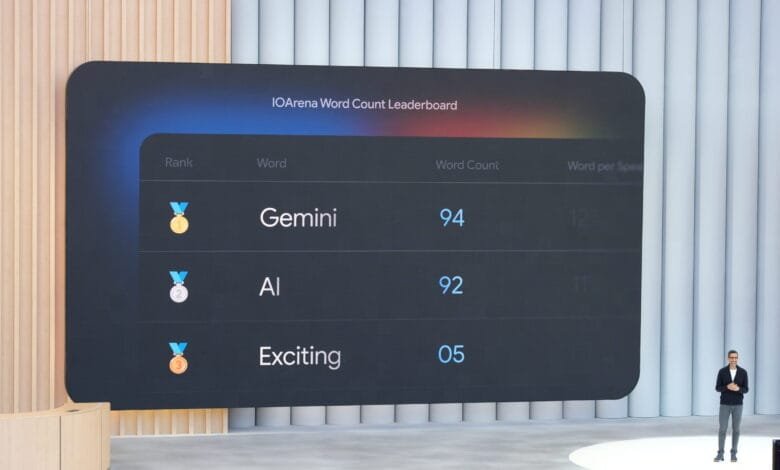Google’s AI Mode Search Is No Joke, Here’s Why

▼ Summary
– Google is shifting from traditional search results to AI-driven search, with AI Mode becoming a central feature.
– AI Overviews were an initial step, but AI Mode represents a more significant transformation in Google’s search approach.
– AI Mode, now available to all users, encourages longer and more complex queries, which AI handles effectively.
– AI Mode uses Gemini 2.5 and personalizes responses by integrating data like Gmail content for better relevance.
– Users can control personal data usage in AI Mode, with clear indicators when personal context is applied.
Google’s AI-powered search is undergoing a dramatic transformation that will fundamentally change how we find information online. The days of simple blue links dominating search results are fading fast, replaced by an increasingly sophisticated AI-driven experience. At its recent I/O event, the company unveiled major upgrades to its AI Mode search, signaling a bold new direction for its core product. These changes aren’t just experimental—they’re poised to reshape web interactions in ways most users haven’t anticipated.
The tech giant’s relentless focus on generative AI has reached a pivotal moment. While AI Overviews previously offered glimpses of this future, the newly enhanced AI Mode represents a quantum leap forward. During the keynote, CEO Sundar Pichai emphasized this shift with a revealing tally tracking mentions of “AI” and “Gemini” throughout the presentation. The message was clear: artificial intelligence isn’t just another feature—it’s becoming the backbone of Google’s search infrastructure.
Originally launched as a limited experiment, AI Mode is now rolling out to all users as a prominent option on the main search page. Though not yet the default setting, early data suggests it’s only a matter of time. Pichai noted that people using AI Mode tend to submit more detailed, nuanced queries—precisely the type of searches where AI excels. This behavioral shift hints at how search habits may evolve as the technology matures.
Under the hood, the upgraded experience runs on a specialized iteration of Gemini 2.5, fine-tuned to deliver hyper-personalized responses. To achieve this, Google is beginning to integrate select personal data sources, starting with Gmail integration. The system can now reference booking confirmations, purchase receipts, and other relevant emails to tailor its answers. Privacy controls remain front and center—users can toggle these features on or off, and the interface clearly indicates when personal context influences results.
The implications extend far beyond convenience. As AI Mode grows more sophisticated, it could redefine what we expect from search engines altogether. The technology’s ability to synthesize information from multiple sources—including personal data—points toward a future where search becomes less about finding links and more about receiving curated, context-aware solutions. For businesses and content creators, this evolution demands fresh strategies to remain visible in an increasingly AI-dominated landscape.
What began as an experiment is rapidly becoming the new normal. Google’s vision for search is unmistakable: a seamless, intelligent assistant that understands not just what you’re asking, but why you’re asking it. The transition won’t happen overnight, but the direction is clear. The question isn’t whether AI will transform search—it’s how quickly we’ll adapt to the change.
(Source: Ars Technica)






